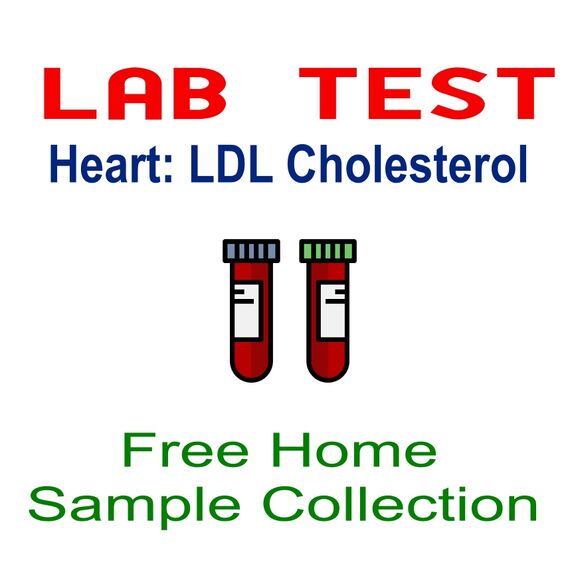This test is aslo known as Cholesterol Test or Direct LDL Cholesterol Test or LDL-C Testor or Calculated LDL Cholesterol Test
LDL-C test calculates the amount of LDL cholesterol in your blood. As LDL levels can give information with regard to cardiovascular health, they may be checked as part of diagnosis, screening, or monitoring.
- Diagnosis: An LDL cholesterol test may be used to diagnose high cholesterol in your blood.
- Screening: Screening means testing LDL cholesterol levels before any symptoms occur. Because health issues can occur when cholesterol levels are too high, doctors may check your LDL cholesterol levels to get a baseline measurement. Your doctor can compare future measurements to this one to get an idea of your cholesterol trends.
- Monitoring: Monitoring your cholesterol levels at regular intervals over time enables doctors to notice any changes and to see if treatment for conditions, like heart disease or high cholesterol, are working properly.
The LDL cholesterol test measures the amount of LDL cholesterol in the blood.
Cholesterol is a fatty substance your body naturally creates to help in digesting food, creating hormones, and cell membranes. The substance is made up of different types of lipoproteins, which are a combination of fats, also known as lipids, and proteins. Lipids connect to proteins to be able to move through your blood.
Cholesterol is a fatty substance your body naturally creates to help in digesting food, creating hormones, and cell membranes. The substance is made up of different types of lipoproteins, which are a combination of fats, also known as lipids, and proteins. Lipids connect to proteins to be able to move through your blood. Cholesterol testing often measures different substances in the blood:
High-density (HDL) cholesterol: This carries cholesterol from other parts of your body to your liver for processing and removal and is considered the “good” cholesterol.
LDL cholesterol: This is known as the “bad” cholesterol because too much of it in your blood can lead to a buildup of plaque in your arteries, putting you at risk of heart disease, diabetes, or stroke.
Triglycerides: These are fats created by the foods we eat, stored until your body needs energy. Triglycerides are processed by your body when it needs energy. Having high levels of triglycerides can lead to coronary heart disease and other cardiovascular issues.
Very low-density (VLDL) cholesterol: VLDL is similar to LDL cholesterol but carries triglycerides through the blood. VLDL can contribute to plaque buildup and is considered a “bad” cholesterol.
Knowing about these different components of cholesterol testing is important to understanding the options for checking your LDL level. These levels can be estimated based on the number of other types of cholesterol in the blood or can be measured directly:
Calculated LDL cholesterol testing: In this test, total cholesterol, HDL cholesterol, and triglycerides are used to estimate LDL cholesterol levels in your blood. Usually, LDL is calculated by subtracting the amount of HDL and VLDL from the total amount of cholesterol. In most cases, LDL cholesterol levels reported by your doctor are calculated rather than measured directly.
Direct LDL cholesterol testing: Tests that measure only LDL cholesterol levels in your blood are called direct LDL cholesterol tests. Your doctor might use a direct LDL cholesterol test if you have a high level of triglycerides, which can make the formula-based calculation of LDL less accurate.
Most of the time, using a formula to calculate LDL cholesterol is accurate enough to provide your doctor with a useful assessment of your cholesterol levels.
Tesing may be done in ordr to judge your risk of CVD or monitor changes in cholesterol as time goes on.
Physician would advise you, how often you should check your levels of LDL cholesterol based on certain factors like your age, your family history, and other medical conditions.
Periodically testing to check cholesterol levels aides physicians to see any changes that could become harmful to your health. High or increasing cholesterol levels are a risk factor for heart disease, diabetes, or stroke, among other conditions.
Your physician may want to have your cholesterol levels tested more often if you or your family have a history of heart disease, smoking, high blood pressure, type 2 diabetes, obesity, an inactive way of living, or a diet high in saturated fat.

No special preparations required.
None
Dummy Test
Type the specimeny type like blood, urine or any other specimen required.
Sample report in a format
Aucun avis trouvé


